Table of Contents
Today and more than ever, micro-businesses face the increased competition, driven by a larger reach, of mega apps and large businesses. But, does it mean that it is the end for these small businesses? Not at all. In a world where comfort is king, and with 97% of customers willing to abandon a cart because the purchasing process isn’t convenient enough, there is room for micro-businesses to compete on the grounds of convenience, which can be boosted with multichannel POS systems.
So what are multichannel POS systems, what are they made of, and what benefits do they bring to the table? In this article, we explore the definition, benefits, and essential features of multichannel POS systems, highlighting their importance for micro-businesses aiming to thrive in a competitive market.
What Is A Multichannel POS?
A point of sales is a step within the buying process whereby a merchant accepts payment from a customer. A POS can take several forms:
- Physical: it could be a simple cash register, or be an advanced digital machine often in the form of a wide screen with an associated cash register and a payment terminal.
- Non-Physical: Typically also called a payment gateway, which is a technology used by merchants to accept online payments.
In other words, a POS is not limited to a physical piece of equipment, but is very much a stage during which the exchange of goods or services is made in exchange for money.

A multichannel POS is a solution that enables merchants to sell their goods and services through several channels, namely in their store, at the customer’s doorstep, online, through WhatsApp… all from a single platform. In fact, around 20% of the UAE’s population - or 6.5 million consumers - have now shifted to online shopping.
A multichannel POS solution enables small merchants to not only streamline their operations across sales channels, but also compete on customer convenience. Indeed, by enabling customers to buy from the channel that is most convenient to them - be it in store, online, or through WhatsApp, increases a merchant’s value proposition to the eyes of a prospect, and therefore affects the generated sales.
The Different Types Of POS In A Multichannel POS
A POS system can come in different forms: on a wide screen, on a small device, on a smartphone, online, and on a self-serve kiosk, to name a few. Each POS system will serve a specific purpose for a specific business need. For example, a fast food chain might specifically look for a self-serving kiosk in order to simplify the ordering process. A micro-merchant, however, will prefer to save precious space in their shop by avoiding a wide screen POS.
It is worth noting that POSs often mix hardware and software.
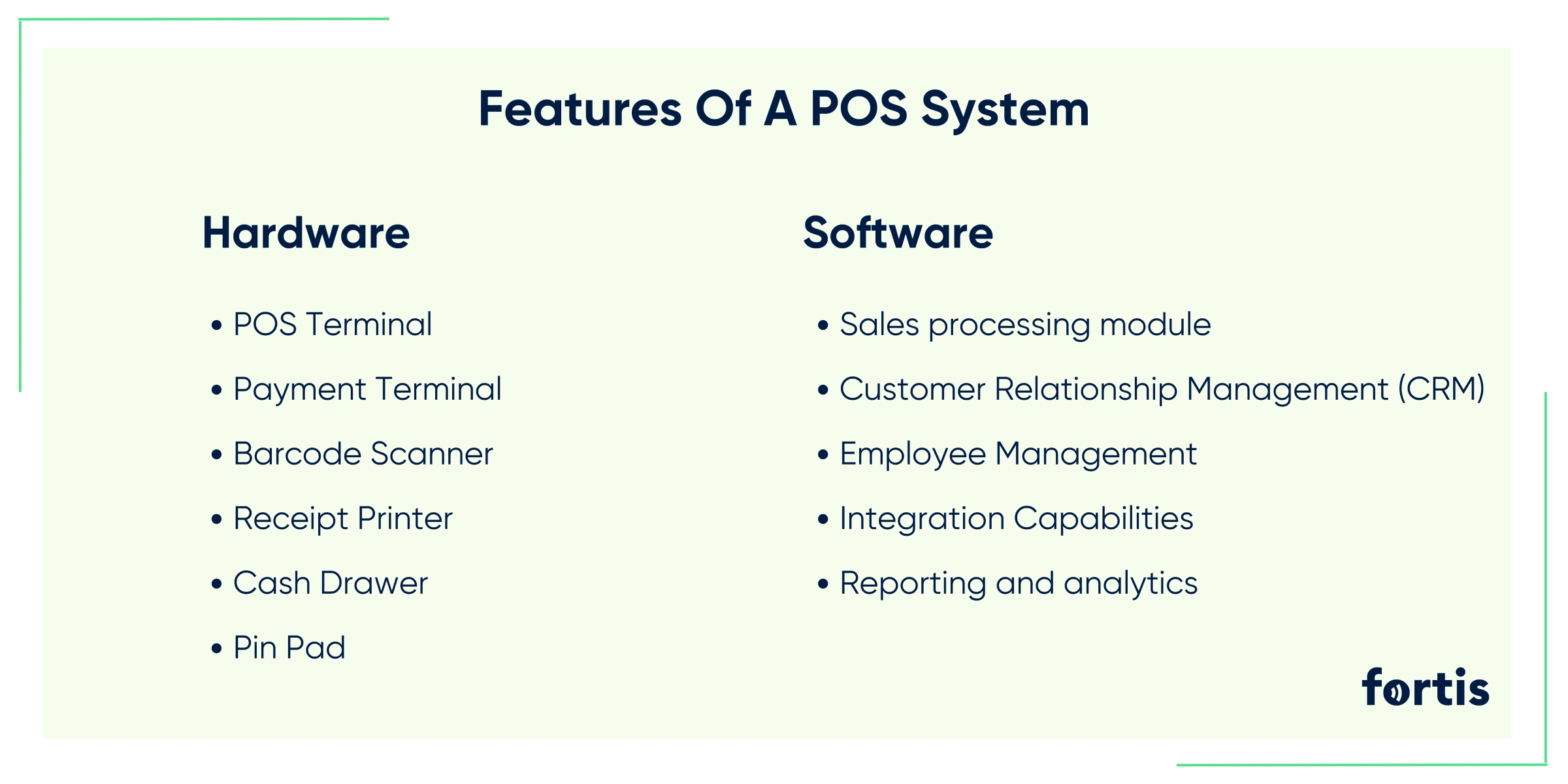
In terms of hardware, a POS system is comprised of:
- POS Terminal : the device used to record and process transactions.
- Payment Terminal : the device used to accept card payments.
- Barcode Scanner : to scan product barcodes for sales.
- Receipt Printer : it is used to print receipts.
- Cash Drawer : used to store cash safely.
- Pin Pad : for card payments.
In terms of software, a POS system is comprised of:
- Sales processing module : used to handle transactions, including sales, returns, exchanges, discounts.
- Customer Relationship Management (CRM) : used to store customer information and purchase history.
- Employee Management : used to track employee performance, manage access permissions for different staff roles.
- Integration Capabilities : a POS will need to work with an existing ecosystem, which is why integrations are key.
- Reporting and analytics : helps monitor performance across the business.
The different types of POS systems you may find are the following :
Wide Screen POS
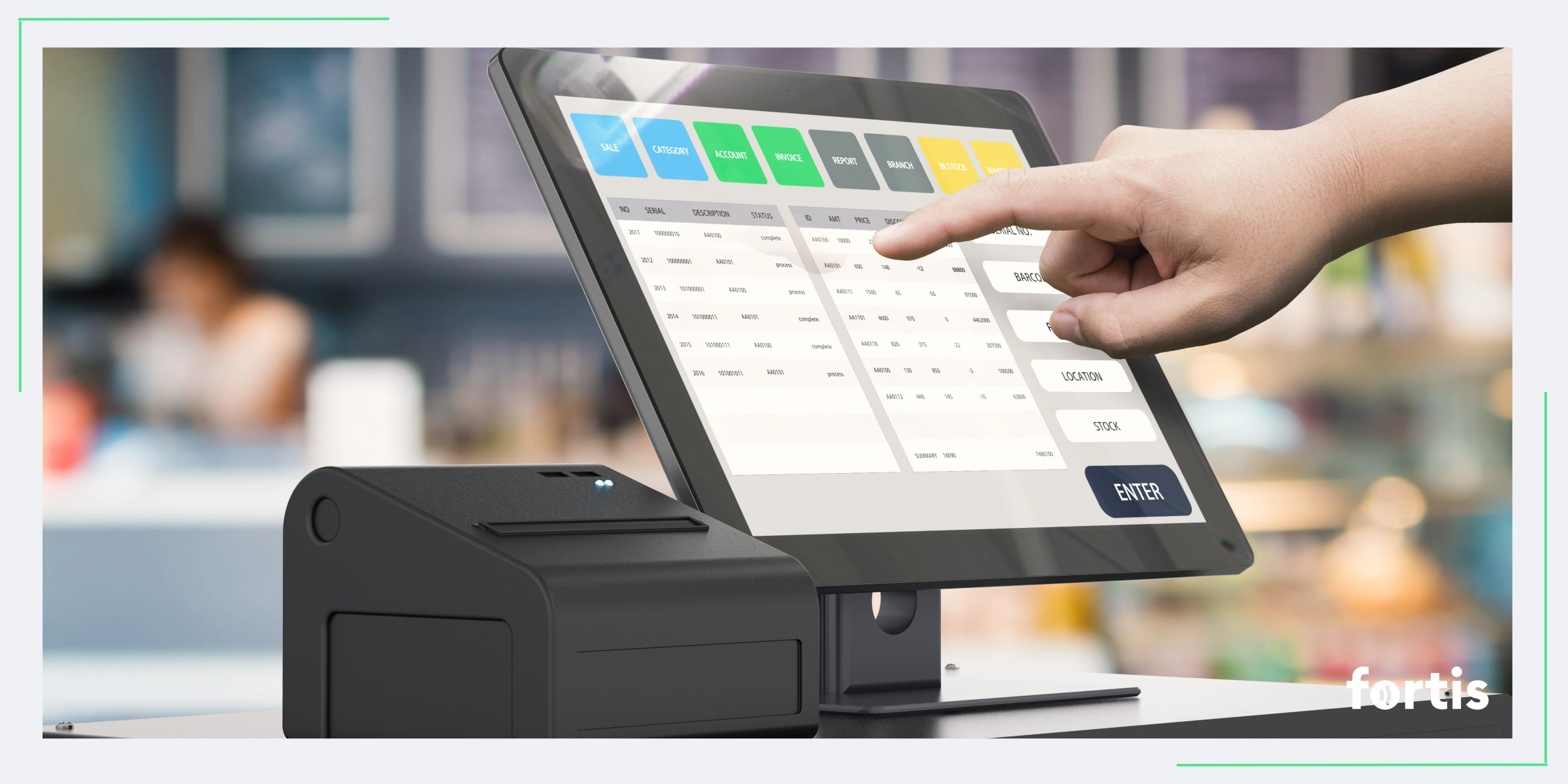
Typically used in restaurants and large retails stores, wide screen POS enable a cashier to capture orders fast and are usually accompanied by a payment terminal in order to process payments on the spot. They provide enough screen real estate to browse through a large catalog quickly, and move through the process fast.
SmartPOS
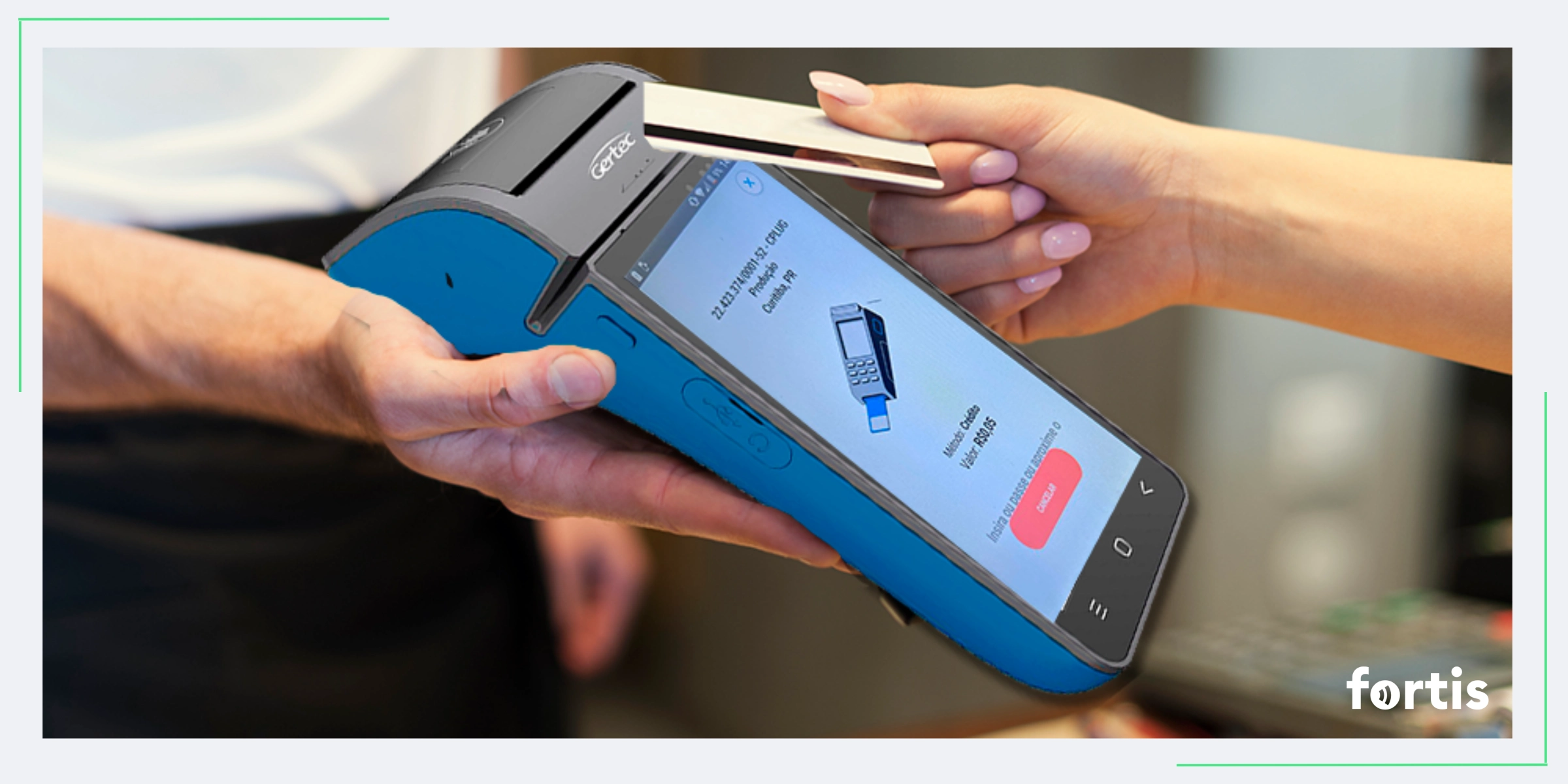
The Customer Value (CV)
SmartPOS is the name given to the latest generation of payment terminals. These Android-powered terminals are generally used to provide payment, however, a new generation of SmartPOS software, such as Fortis, now enables merchants to put in order directly through their SmartPOS.
SmartPOS enables micro-merchants and small businesses to not only save space within their shop, but to also provide their delivery team with a device capable of editing orders at the customer’s doorstep. This helps the business save costs on return trips, while also providing better convenience for their customers.
SoftPOS (Mobile POS or mPOS)
SoftPOS, also known as mPOS (Mobile POS) is a POS software that leverages a smartphone’s NFC technology to accept payments directly from a staff member’s phone. This helps a business not only save expenses on purchasing machines, but also adds convenience to your customers and your staff. This technology reduces wait time, minimizes errors, and gives staff members more comfort in their work. In fact, over 40% of businesses are using POS apps, 80% of these businesses being small to medium size businesses.
Self Service POS
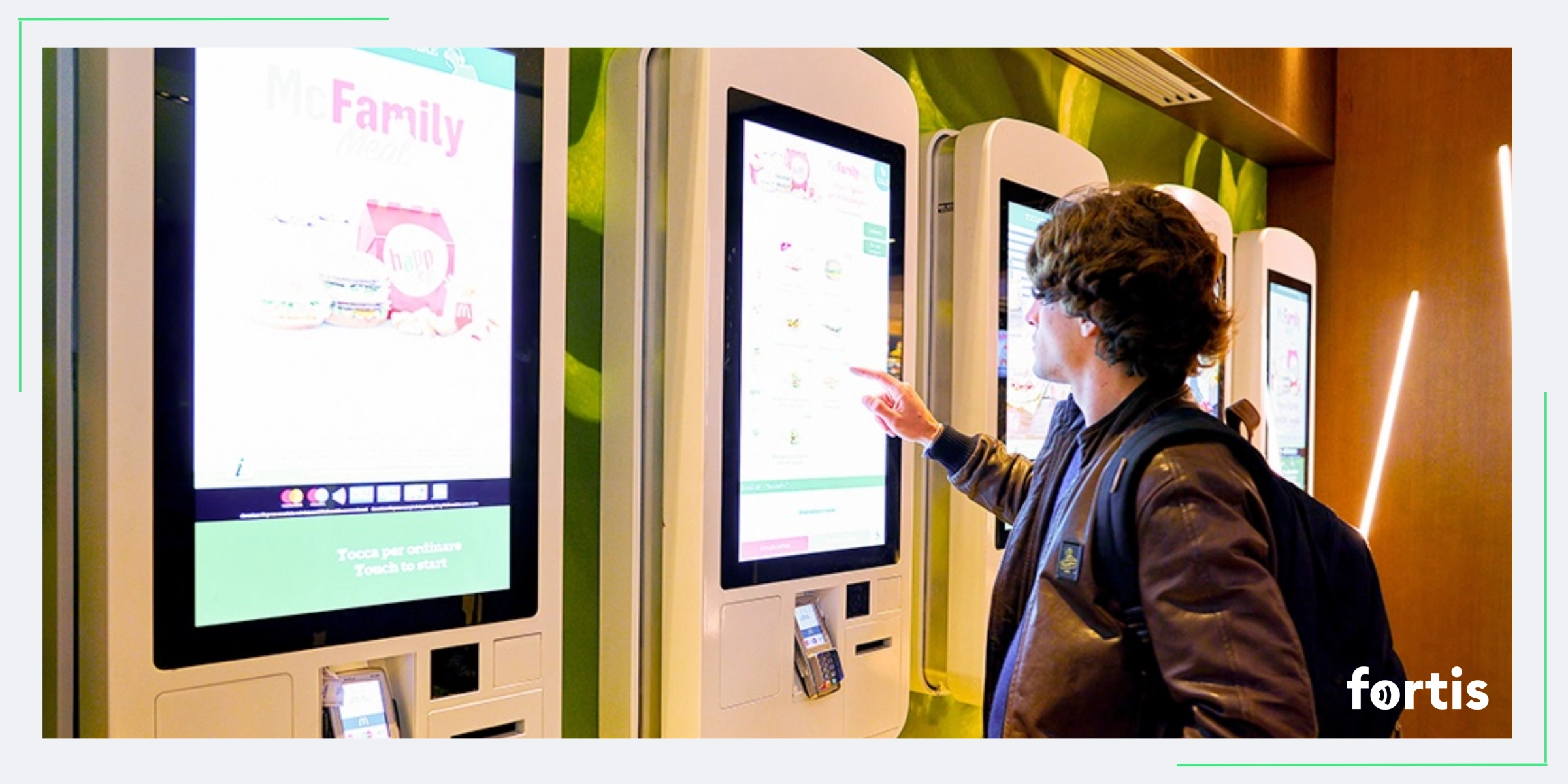
A Self Service POS system is often found in large retail stores or fast food restaurants. It enables customers to put in their orders directly, which saves the business resources while streamlining their operations.
Online POS
Online POS are also called Payment Gateways, and enable merchants to accept payments online, which significantly broadens a business’s reach - and therefore sales.
Benefits Of A Multichannel POS
Businesses have a large choice of POS types they can choose from. Some businesses, however, may need several types of POS to accommodate their use cases.
For example, a cell phone merchant may need a SmartPOS in their shop to take orders while saving physical space, but may also need to have an online POS in order to enable customers to pay online. A clothing store may need to have a wide screen POS in their shop, but also have a SmartPOS in order to send a delivery man with several sizes of an item for a customer to try them on, pay for what they want, and return what they don’t easily, quickly, and on the spot.
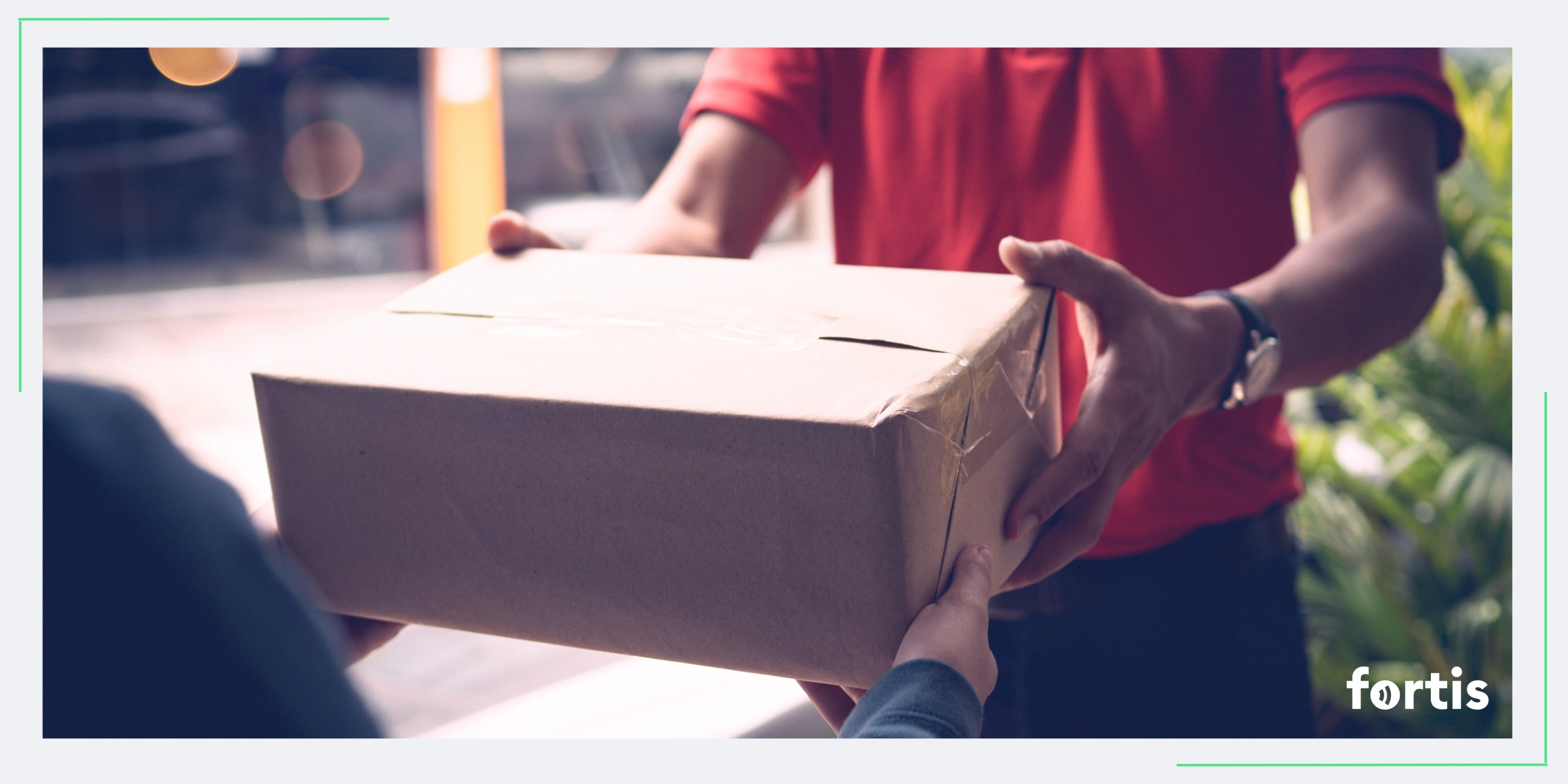
In other words, today and more than ever, small businesses need a variety of POS systems in order to compete on reach and on convenience. Managing all of the POS machines and the orders they’re capturing can be tremendously difficult and time consuming, if it is not managed centrally, which is where a Multichannel POS comes into play.
- Streamlines Operations & Maximizes Efficiency
A multichannel POS system centralizes all your orders onto a single Order Management System. Without such a solution, you would find yourself trying to process orders coming from all sides, thus making your operations challenging.
Furthermore, Having all your POS systems connected to a central management platform ensures that you can push product updates once, and have them updated on all systems in just a click.
- Boosts Customer Experience & Satisfaction
With 97% of consumers abandoning a purchase because the process wasn’t convenient enough, it’s safe to say that convenience gets you business.
Operating a multichannel POS helps you sell through the channels and platforms that your customers prefer. Whether it’s shopping from the comfort of their home or paying in different methods upon delivery, providing the convenience of accepting orders from anywhere will set your business apart, and will future-proof your business.
A multichannel POS also enables you to put an order from one POS, and edit it from another, before accepting the payment.
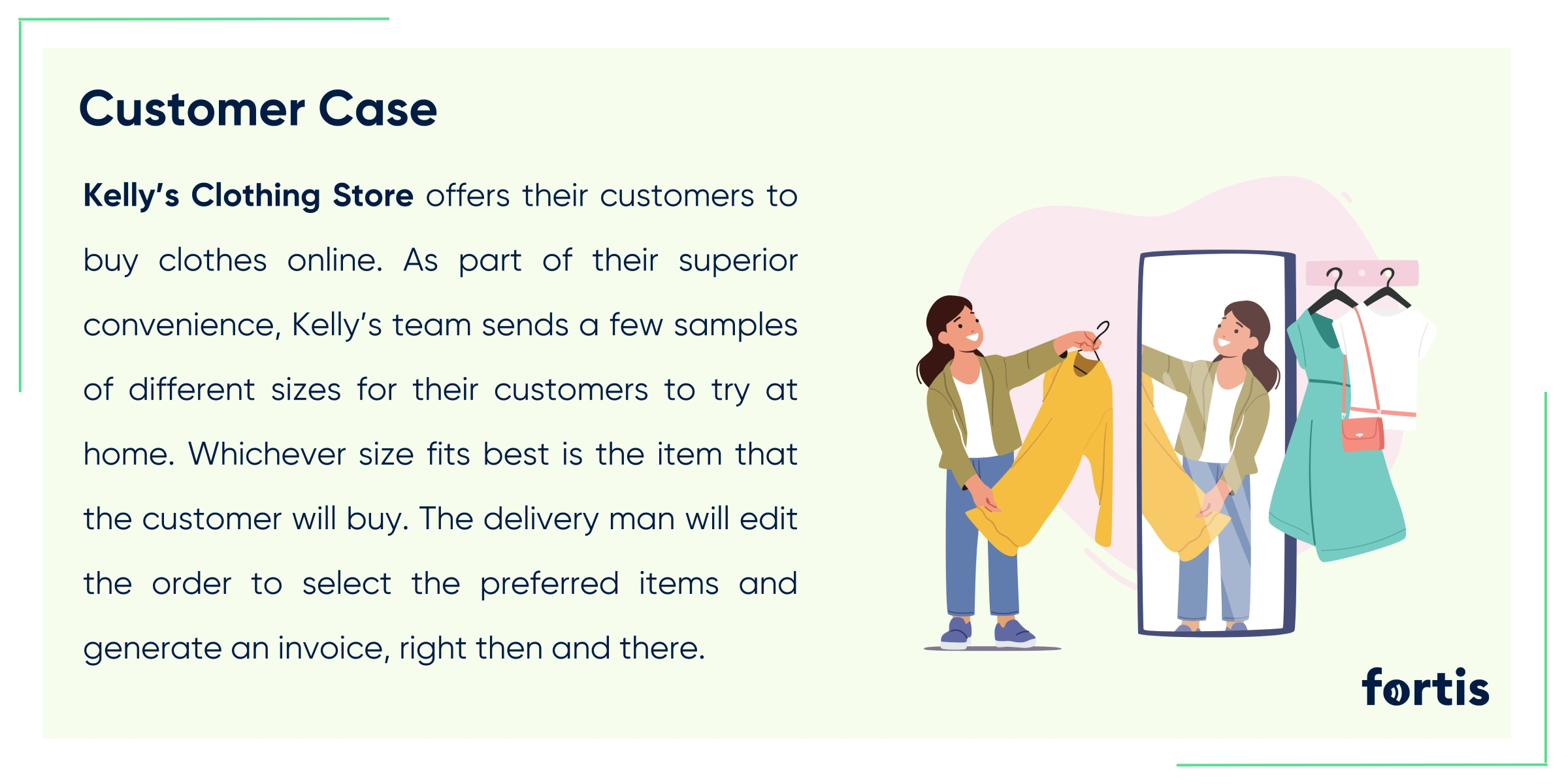
- Stay On Top Of Industry Standards
A multichannel POS needs an order management system (OMS) to capture and centralize orders. Within that OMS, a multichannel POS solution is likely to also provide you with a Customer Relationships Management (CRM) tool, and a loyalty program. In other words, it is likely that the multichannel POS system works under an omni-channel platform that combines all of these tools under one umbrella.
Centralizing the data that flows throughout your business enables your business to stay on top of the industry’s standards. Not only is our business capable of selling in different channels, but you can also save customer information and act upon it by, for example, reaching out when items that could be of interest to your customers are back in stock.
- Multichannel POS Makes You Data-Driven
Enabling your business’s data to flow seamlessly, from customers to items, in one central platform enables you to gain a greater understanding on the consumption behavior of your customers, and the performance of your items. This in turn helps you make better decisions that are baked on data for the benefit of your business - and affecting your bottom line.
Opting for an omni-channel platform gives you a global view of your business’s performance and helps you keep your sales data in sync, with a single source of truth at all times. With the right reports, you will get the right insights in order to take action.
Must Have Features For Multichannel Retailers
When choosing an omni-channel solution with multichannel POS, there are a few things you should look to have as part of their suite of features.
- Point of Sales Software
This one might come as an obvious one, but opting for a solution that provides you with a POS software that works on all your existing devices is key. This would mean that you will not need to purchase new hardware to run your business.
- Customer Relationships Management
Small merchants rely heavily on their customer relationships. It is hard to turn customers into regulars, but nothing feels more rewarding than seeing a familiar face come back through your doors. One of the tools that will help you build those relationships are CRMs. Such tools help you track your relationship with customers, namely on their preferences and their purchasing history.
Some of the features you should look for are :
- The ability to record the customer’s name, address, and birthday.
- The ability to connect your CRM to your loyalty programs.
- The ability to communicate with your customers through several channels, including WhatsApp, texts, phone, or emails.
- Reports & Analytics
The power of an omnichannel solution comes notably from having a centralization of data related to your customers, products, and business. Having built in reports and analytics that enable you to understand the health of your business, the performance of your products, and the customer preferences in terms of most active sales channels, can help you invest in the right ideas.
Having a built-in report and analytics modules helps you notably :
- Improve decision-making.
- Choose better products that your customers will love.
- Understand customer behaviors and adapt your business consequently.
- Being A Cloud-Based POS Solution
Businesses evolve to fit the needs of their customers, and sometimes these needs may require businesses to expand their sales channels, namely by investing in new POS machines. It is crucial to work with a multichannel POS that can easily be set up no matter where and how you operate, thanks to being in the cloud. A cloud-based solution will enable you to get the latest updates on time and benefit from the product’s latest innovations.
- Solid Order Management System
An order management system will help you manage all the incoming orders captured from your points of sales. A good order management system should enable you to see the order source, payment method, delivery option, order list and worth, discount codes used, customer profile, customer status, and order status, amongst other options.
An order management system should enable you to manage an order, update its status, assign it to a member of your staff, deplete your inventory, and communicate with your customer directly through several channels.
Conclusion
In today's competitive market, micro-businesses must remain adaptable to succeed. A Multichannel POS system serves as a crucial tool for optimizing operations, improving customer experience, and staying responsive to evolving consumer trends. By consolidating transactions across multiple sales channels, from a merchant’s shop to selling online, small to medium businesses can ensure a seamless purchasing journey for their customers, fostering satisfaction and loyalty.
When opting for a multichannel POS, make sure that they come with features like CRM integration, robust reporting, and cloud-based order management. This centralized approach empowers businesses to make informed decisions that drive growth and profitability.




.svg)







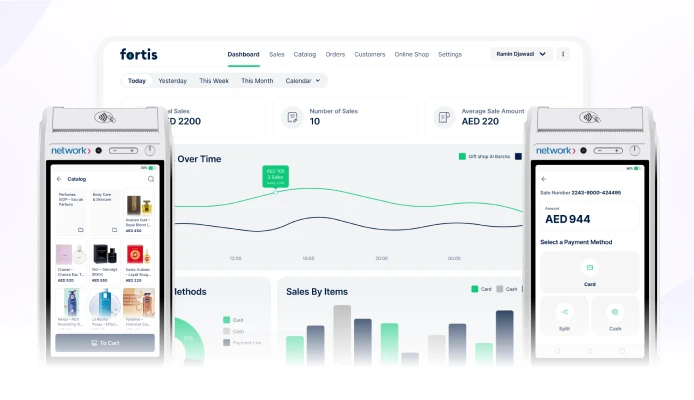
.svg)

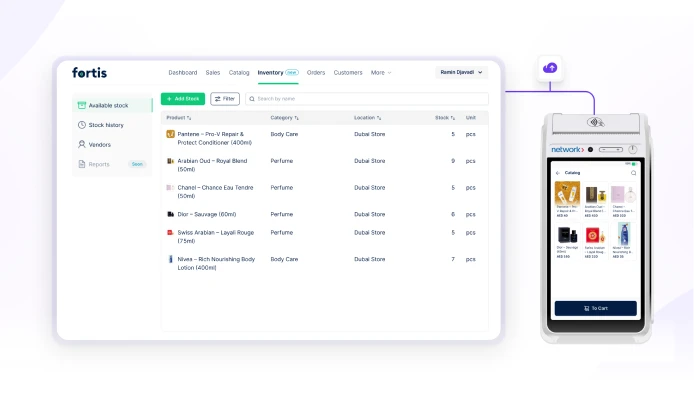




.png)





.png)
.png)
.png)



